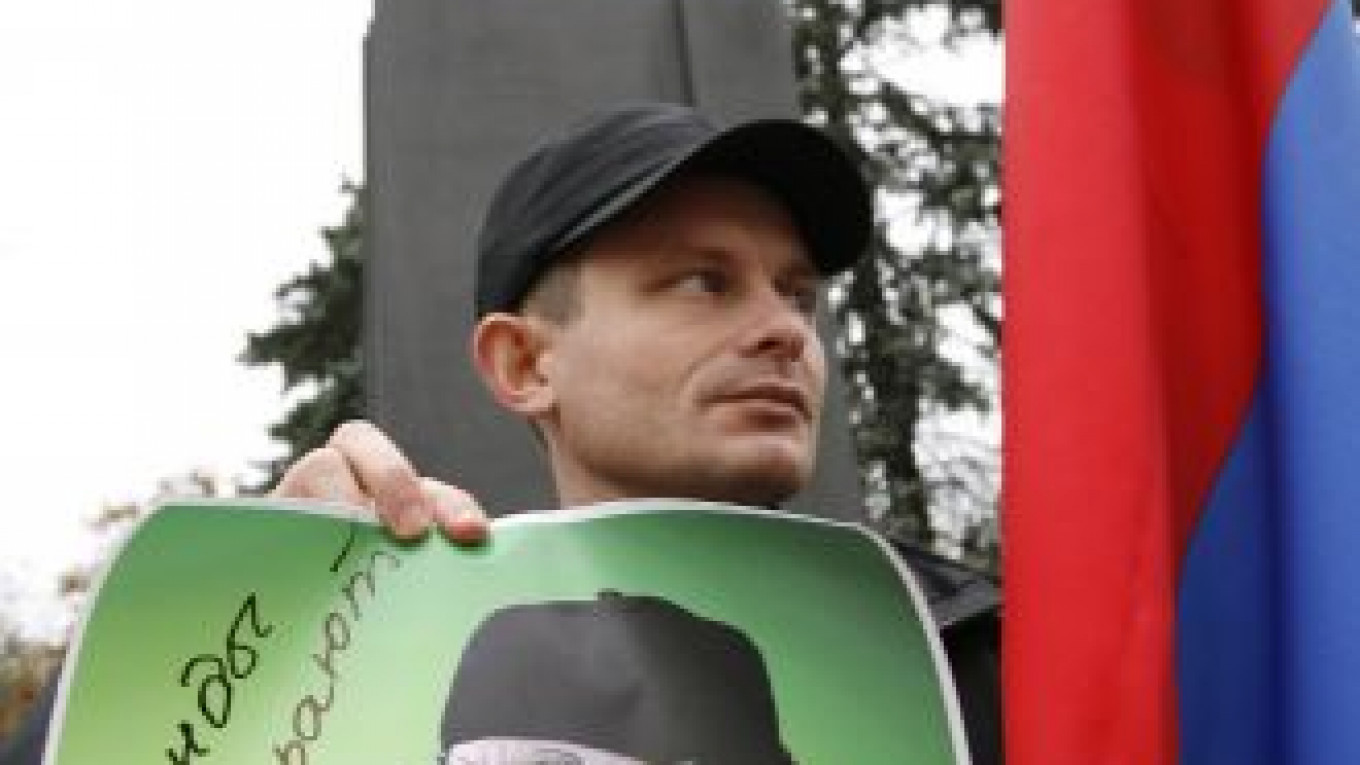TRIPOLI — Libya's National Oil Corporation has summoned Gazprom to a meeting in Tripoli to discuss what the Libyans said was a breach of investment obligations — the first sign that the new leaders are prepared to renegotiate Gadhafi-era contracts.
Although Libya's claims center around a relatively minor issue — the failure of Gazprom to pay for student education — the move indicates the headaches awaiting global energy companies in the aftermath of the war.
While the National Oil Corporation, or NOC, has made it clear that it will be receptive to proposals for compensation, the move also underlines the readiness of Libya's new rulers to act on any perceived lapses in commitment.
"They had to meet their obligations, and we will hear why they didn't fulfill them," NOC chairman Nouri Berouin said.
The meeting, originally scheduled for Thursday, had to be canceled as flights into Tripoli's airport were halted on concerns about gunfire across the skies of the capital following news of former leader Moammar Gadhafi's death.
According to the NOC, the spat over training involved about 60 Libyan university students, who were left without funds halfway through their academic year.
The group made up about a third of the total number of Libyan oil sector hopefuls who are being trained as part of an agreement with several oil majors, including BP.
Gazprom declined to comment.
It has exploration rights for Blocks 19 and 64, and following an asset swap with BASF in December 2007, it acquired 49 percent of oil concessions C96 and C97, which were pumping 120,000 barrels per day before the war and have reserves of 660 million barrels of oil.
Gazprom also has a deal with Italy's Eni to buy a stake in the giant Elephant field.
Libyan officials have promised to investigate all Gadhafi-era deals. Some have said countries that failed to back the NATO bombing campaign, including Russia, China and Germany, or that had been slow to denounce Gadhafi, such as Italy, could lose out.
The NOC chairman expressed confidence that the issue with Gazprom could be resolved, adding that Canada's Suncor, which had a similar deal, had already agreed to compensate for breaching its contract during the war.
Sources within the NOC said, however, that the behavior of firms during the uprising would be remembered.
"This is a black spot on these companies' names," a NOC source said on condition of anonymity.
Last week, Libya's interim oil and finance minister reiterated earlier promises made by the country's leader, Abdel Jalil, that allies could expect preferential treatment in return for their help.
"We will give preference to countries and friends that helped us," Ali Tarhouni told reporters.
Industry sources have long anticipated an investigation of oil deals by Libya's new rulers, which may lead to a reallocation of some contracts to reward countries that supported the uprising against Gadhafi.
Foreign players accounted for almost half a million barrels per day of oil output in Libya and imported 1.3 million bpd of crude before the war.
A Message from The Moscow Times:
Dear readers,
We are facing unprecedented challenges. Russia's Prosecutor General's Office has designated The Moscow Times as an "undesirable" organization, criminalizing our work and putting our staff at risk of prosecution. This follows our earlier unjust labeling as a "foreign agent."
These actions are direct attempts to silence independent journalism in Russia. The authorities claim our work "discredits the decisions of the Russian leadership." We see things differently: we strive to provide accurate, unbiased reporting on Russia.
We, the journalists of The Moscow Times, refuse to be silenced. But to continue our work, we need your help.
Your support, no matter how small, makes a world of difference. If you can, please support us monthly starting from just $2. It's quick to set up, and every contribution makes a significant impact.
By supporting The Moscow Times, you're defending open, independent journalism in the face of repression. Thank you for standing with us.
Remind me later.






